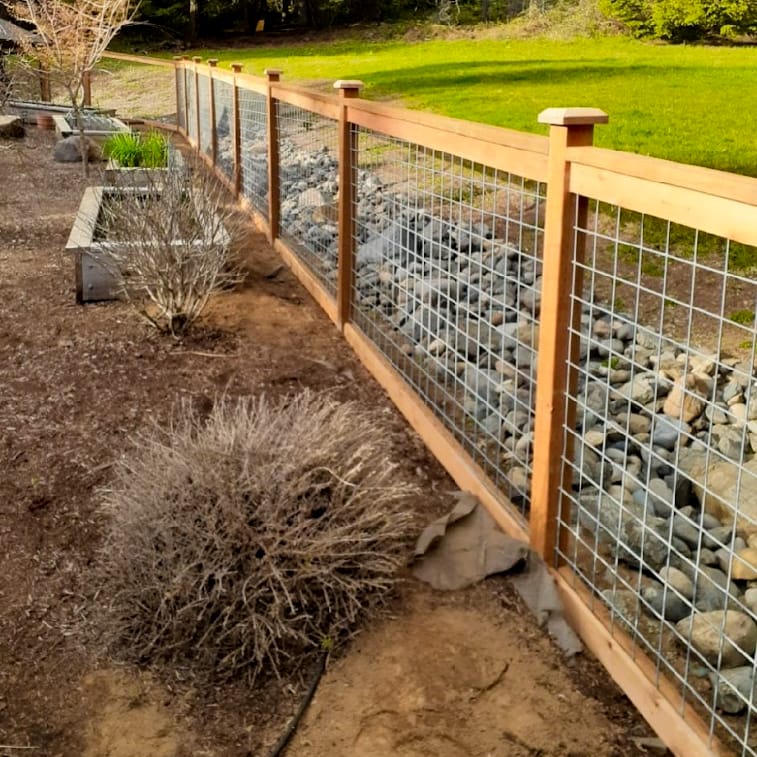All Categories
Featured

A fencing is a beneficial enhancement to any residential property, providing security, personal privacy, and boosting the overall visual allure of your home or company. Nevertheless, like any outside structure, a fencing will naturally use down in time as a result of exposure to the components, accidents, or merely age. Acknowledging the indications that your fence needs to be changed can assist you avoid further damages and keep the safety and appearance of your residential property. Below are some key indications that it's time to replace your fence.

- Noticeable Damage or Degeneration
Among the most noticeable signs that your fence needs to be replaced is visible damages. Whether it's from weathering, accidents, or insects, any major fractures, splintering, or missing boards can dramatically minimize the architectural stability of your fencing. If the damage is substantial and goes beyond just a couple of repair work, changing the entire fencing might be much more economical in the future.
- Leaning or Sagging
A sagging or leaning fencing is a clear indicator of a problem. Also if the fencing shows up to be leaning somewhat, it can be an indicator of underlying architectural concerns that might intensify with time.
- Decaying or Worn Out Timber

Wooden fencings are specifically prone to rot and degeneration, particularly in locations that experience high levels of moisture or humidity. If you discover that parts of your wooden fence are soft, tarnished, or have noticeable mold and mildew, these are all signs of rot.
- Rust and Rust (For Metal Fences)
If you have a steel rust, fencing and corrosion are typical signs of deterioration,. With time, direct exposure to humidity, snow, and rain can trigger steel fences to establish rust places, which can deteriorate the framework and spread. While minor rusting can occasionally be repaired, substantial rusting or rust might make the fencing harmful and require a complete substitute. It may be time to consider changing your steel fence. if you observe any kind of significant weakening or big locations of rust.
- Fence No Longer Fulfills Your Needs
Another factor to change your fencing can be that it no more serves its designated objective. Gradually, your needs may transform-- probably you require a higher fence for more privacy or a stronger one for increased safety and security. If your fence no more fulfills your demands or doesn't align with your current preferences, it may be time to upgrade to a brand-new, a lot more functional style.
- Fading and Discoloration
While fading and staining are generally aesthetic issues, they can still indicate that your fencing is maturing. Exposure to UV rays and extreme climate can cause fences to shed their initial shade, making them look worn and dull. If the fading is substantial and you've currently tried tarnishing the fence and cleaning up, it could be time to replace it to bring back the look of your residential property.
- Frequent Fixings
If you find on your own regularly repairing your fencing, maybe an indicator that the fence is nearing the end of its lifespan. While small repairs can prolong the life of a fencing, regular fixes might suggest that the framework is no more secure. In this case, it might be extra economical to replace the whole fence instead of continuing to purchase fixings.
Conclusion
Changing a fence is a significant investment, however it is necessary for keeping the safety and security, aesthetic, and personal privacy charm of your home. If your fence is showing indicators of damages, rot, leaning, or various other architectural concerns, it's essential to analyze whether a replacement is required. By identifying these indication early, you can make educated choices about when to replace your fencing, guaranteeing your residential property remains safe and secure and aesthetically appealing for years to find.
Latest Posts
Laminate Floor Covering: Style Satisfies Durability at Carpet Interiors Floor & Home
Published Apr 19, 25
2 min read
Your Neighborhood Flooring Professionals in Orland Park, IL
Published Apr 19, 25
1 min read
Full Circle Strategic Marketing - Crush Google Rankings with Battle-Tested Search Engine Strategies
Published Apr 19, 25
2 min read
More
Latest Posts
Laminate Floor Covering: Style Satisfies Durability at Carpet Interiors Floor & Home
Published Apr 19, 25
2 min read
Your Neighborhood Flooring Professionals in Orland Park, IL
Published Apr 19, 25
1 min read
Full Circle Strategic Marketing - Crush Google Rankings with Battle-Tested Search Engine Strategies
Published Apr 19, 25
2 min read